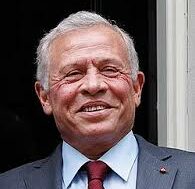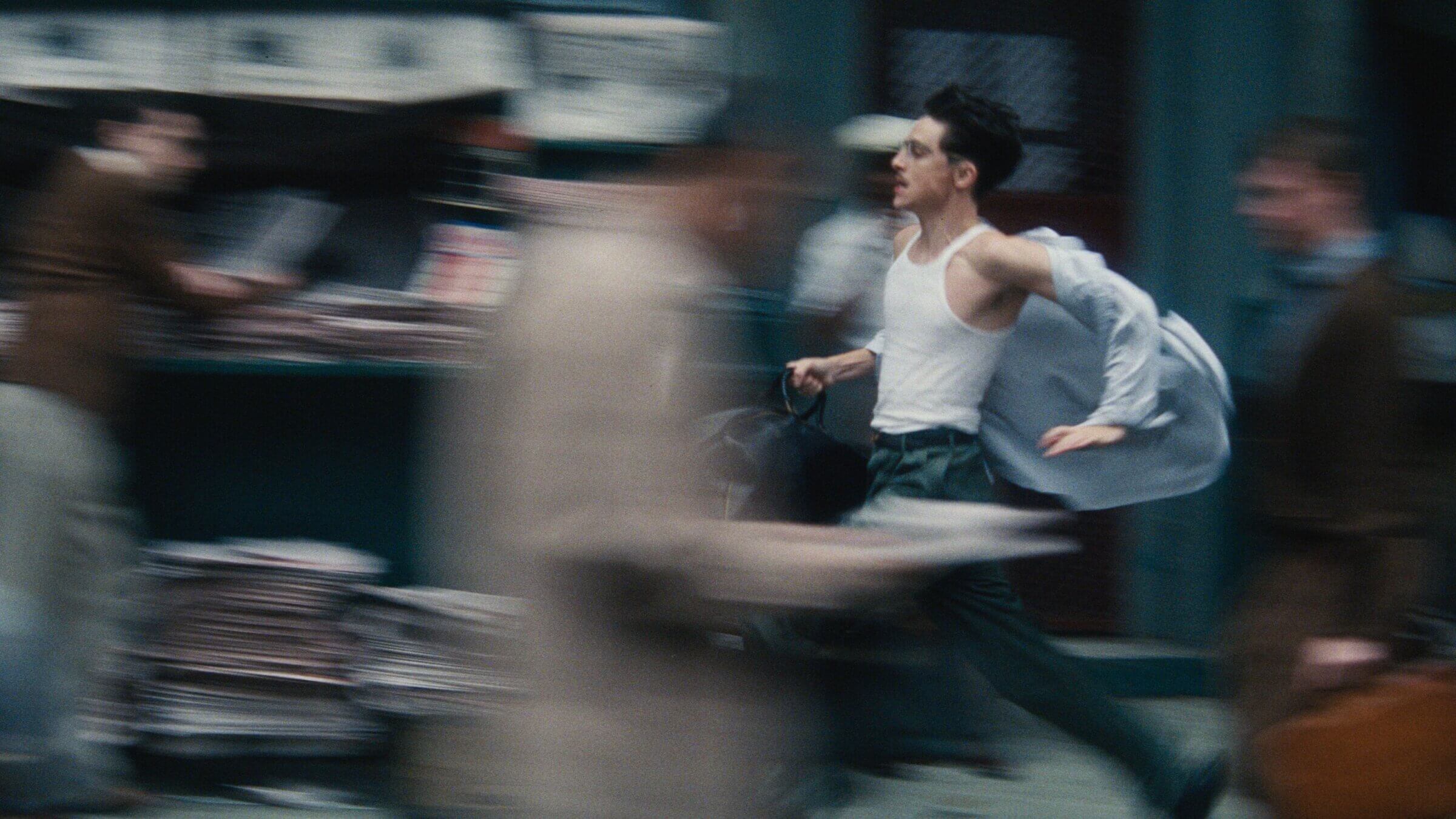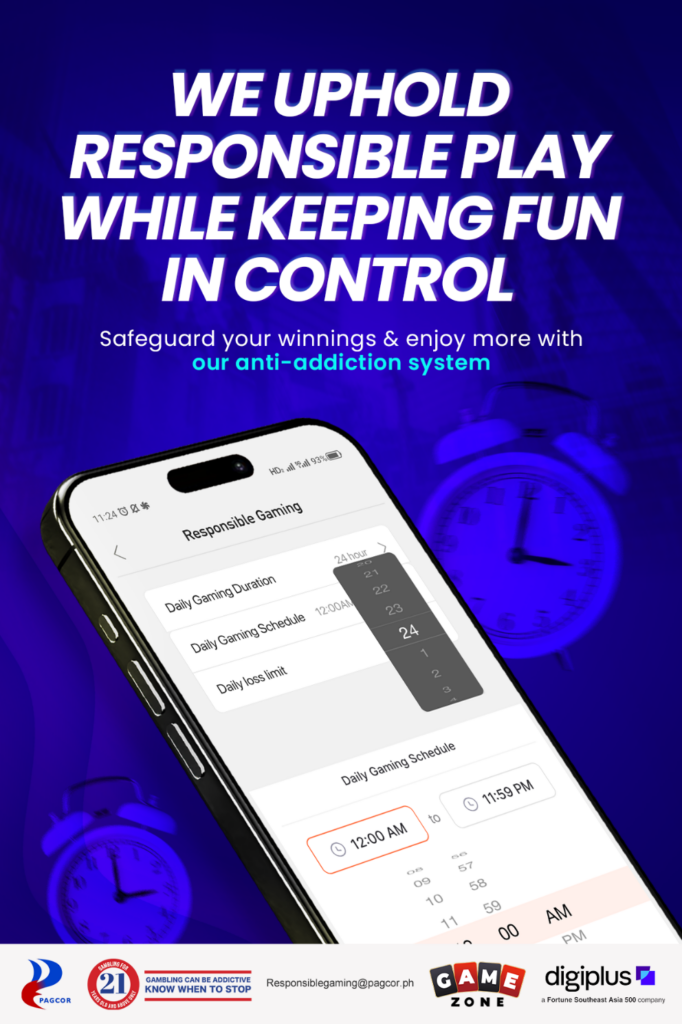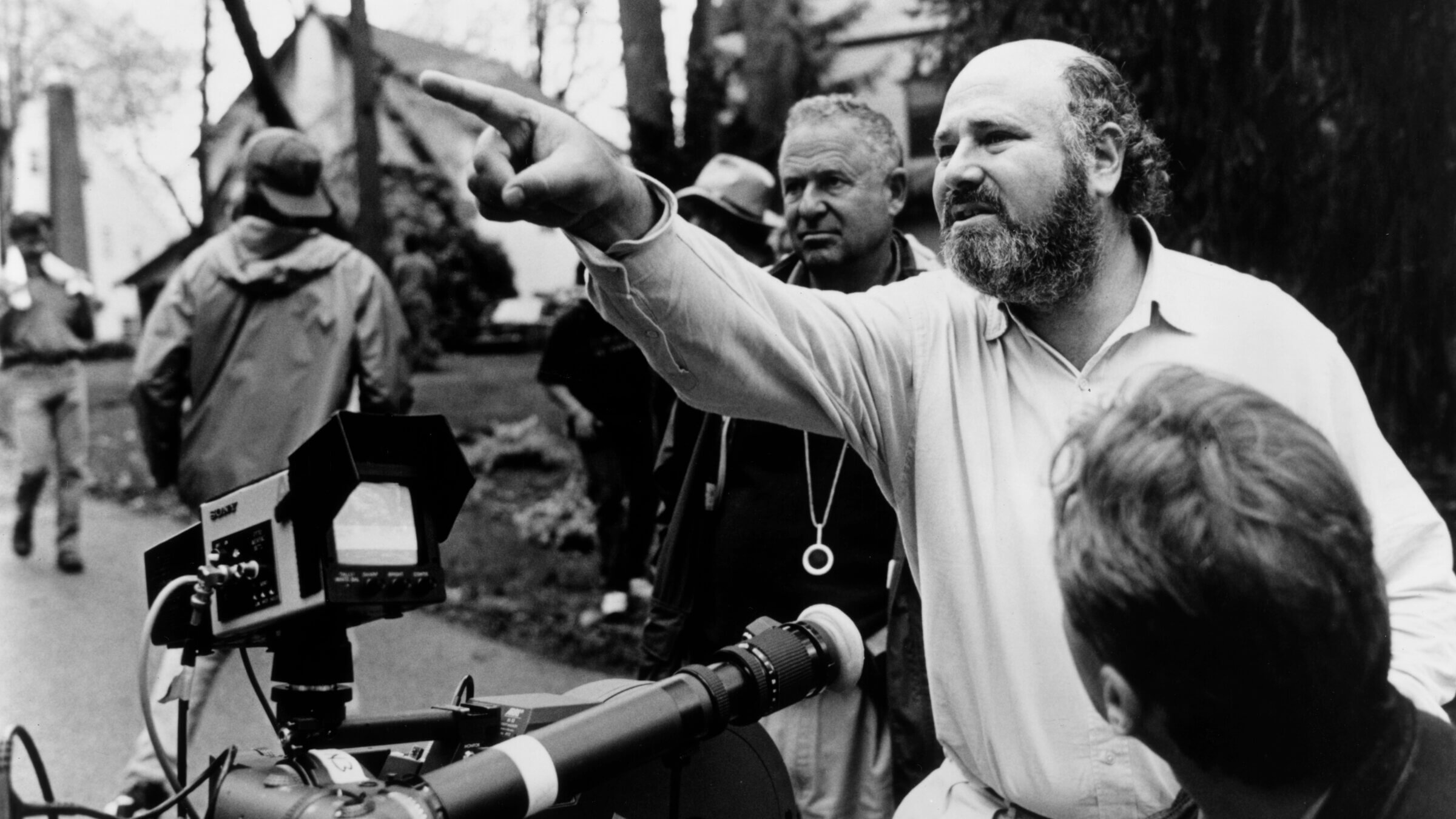Features
With Gaza War Ending, Where Does Jordan Stand?

By HENRY SREBRNIK Today’s “two-state solution” for the pre-1948 Palestine Mandate governed by the United Kingdom is an offshoot of the older idea of partition: the division of the land into Jewish and Arab countries. Transjordan, as it was then called, had been cut from the original Mandate in 1921 and became, first, a separate British mandate under an emir, and in 1946, as Britain was on the verge of leaving Palestine, the Hashemite Kingdom of Jordan. It was always a fragile creation, yet it has lasted to this day, often defying predictions of its imminent demise by friends and foes alike.
Some analysts are currently floating another old idea. Given the basic instability and unsustainability of any Palestinian state in the West Bank (with or without Gaza), a Jordanian-Palestinian confederation comprising the Hashemite Kingdom and the West Bank might, in their eyes, be a better idea.
They view a Jordanian security presence in the West Bank as reliable, more so, certainly, than a Palestinian one. The late King Hussein proposed such a confederation in 1972: a united kingdom consisting of two districts, with full West Bank autonomy except for Jordan’s control of military and security matters and foreign affairs. In 1977, U.S. President Jimmy Carter raised it with Prime Minister Menachem Begin; at various times, President Anwar Sadat of Egypt and U.S. Secretary of State Henry Kissinger espoused the idea.
Indeed, Hussein and PLO president Yasir Arafat agreed to such a confederation in 1985. The king defended this as a “a matter of shared history, experience, culture, economy, and social structure.” Jordan is Arab and Muslim, and already a majority of Jordanian citizens are themselves Palestinian in origin. He believed that the Palestinians would be better served by linking their destiny with Jordan, “a sovereign state which enjoys credible international standing.”
Yet only three years later Jordan renounced the plan, and following the 1993 Oslo Accords, which created a PLO entity in the West Bank, that idea has faded away. Yet it still has some currency, with Palestinian support at times fairly robust. Many Israelis maintain that it would be desirable if the Palestinians became citizens of existing Arab states, Jordan in particular.
But why would Jordan acquiesce to this today? It is true that Jordan controlled the West Bank between 1948 and 1967. But Palestinian national identity back was not as pronounced as it is today. The current extreme forms of nationalism and Islamism don’t fit a traditional hereditary monarchy. Conservatives in Jordan fear that Jordan’s already large Palestinian population would come to dominate domestic affairs.
During the 1960s and 1970s, Palestinian armed factions seriously endangered the Jordanian regime, culminating in the Black September civil war between 1970–1971, and for that reason Palestinian political influence is still suppressed in today’s Jordan.
Nor might this really benefit Israel. What if in such a confederation a resurgent Hamas, Islamic Jihad, or other terrorist group succeeded at overthrowing the Hashemites? The consequences would be far graver than if the same thing happened in a fully independent, PLO-led Palestinian state on the 1949 armistice lines.
The kingdom is also one of the world’s largest recipients of U.S. economic and military assistance, with one of the best-trained armies in the Middle East and advanced American weaponry. If this arsenal were to fall into the hands of Islamists, Jordan would be far more dangerous than a would-be Palestinian state.
Shortly after the Gaza war started, the kingdom saw massive demonstrations against Israel, spurred by the resurgence of the Muslim Brotherhood, who support Hamas and leveraged the public outcry over Israel’s military operations, with aid from Iran, which has stepped up its efforts to destabilize the kingdom by reactivating Islamist groups within the country. Protests organized by the group have been dominated by Hamas flags and pro-Hamas slogans.
The group’s political arm, the Islamic Action Front, is the largest opposition group in Jordan’s parliament since its gains in last year’s parliamentary election, the first following a series of reforms introduced by King Abdullah II aimed at promoting greater democratization.
Jordan’s security services on April 15 arrested 16 people suspected of plotting attacks inside the country involving rockets and drones. The hand of Iran was suspected. Jordan accused the Muslim Brotherhood of planning the attacks and introduced a blanket ban against the group April 23.
The relationship between Israel and Jordan has had its ups and downs, though since a 1994 treaty they are formally at peace. The second intifada, 2000-2005, and Israel’s 2008-2009 military operation in Gaza, were challenging periods. In 2017, an Israeli security guard at the Israeli embassy in Amman killed an assailant and an innocent Jordanian national, shuttering the embassy for six months. The Gaza war has, naturally, put increased strain between the two nations, and in the last several years, it’s been mainly a peace upheld by security coordination.
King Abdullah has of late been particularly critical of Israel. The king joined 56 other countries at the September 15 joint meeting of the Arab League and Organization of Islamic States, following Israel’s September 9 attack on Hamas leaders in Doha, Qatar, in calling for tougher measures against the Jewish state. He also contended that the attack was “proof that the Israeli threat has no limits,” and advocated for a “clear, decisive, and deterrent” response. He urged a “review all our tools of joint action to confront the threat of this extremist Israeli government.”
During his September 23 speech before the UN General Assembly, King Abdullah again centred his remarks on Israel. He criticized Israel for attacking Iran, Syria, and Lebanon, though all three have had Iranian proxies that posed direct threats to Jordan. He accused Israel of complicity in the desecration of Muslim and Christian holy sites in Jerusalem. He even stated that Israel was a threat to the Al Aqsa Mosque. (Jordan maintains administrative control of the Temple Mount because Israel granted that in 1967 following the Six Day War. But in return, no other religion other than Islam is permitted to pray anywhere on the of the Temple Mount.)
On November 1, 2023, Jordan pulled its ambassador from Tel Aviv. Amman also encouraged the European Union and the United Nations to sanction and embargo arms transfers to Israel. The Allenby Bridge, also known as the King Hussein Bridge, which crosses the Jordan River, was shut on September 19, after two Israelis were murdered at the crossing by a Jordanian truck driver. It was the second incident of its kind in a year, following the killing of three Israelis in September 2024. The bridge reopened four days later.
Israel and Jordan share a critical and lengthy border, secured by the peace agreement. The boundary is 482 kilometres long and stretches from the Golan Heights through the West Bank and the Dead Sea to its terminus at the Gulf of Aqaba. Jordan also provides Israel with strategic depth and early warning vis-à-vis Iran. In April and October 2024, as well as during the June 15-23 twelve-day war, bilateral defense cooperation was critical to helping to counter Iranian missile and drone attacks against Israel. A weakened Jordan would place Israel in a far more dire situation.
Henry Srebrnik is a professor of political science at the University of Prince Edward Island.
Features
So, what’s the deal with the honey scene in ‘Marty Supreme?’

By Olivia Haynie December 29, 2025 This story was originally published in the Forward. Click here to get the Forward’s free email newsletters delivered to your inbox.
There are a lot of jarring scenes in Marty Supreme, Josh Safdie’s movie about a young Jew in the 1950s willing to do anything to secure his spot in table tennis history. There’s the one where Marty (Timothée Chalamet) gets spanked with a ping-pong paddle; there’s the one where a gas station explodes. And the one where Marty, naked in a bathtub, falls through the floor of a cheap motel. But the one that everybody online seems to be talking about is a flashback of an Auschwitz story told by Marty’s friend and fellow ping-ponger Béla Kletzki (Géza Röhrig, best known for his role as a Sonderkommando in Son of Saul).
Kletzki tells the unsympathetic ink tycoon Milton Rockwell (Kevin O’Leary) about how the Nazis, impressed by his table tennis skills, spared his life and recruited him to disarm bombs. One day, while grappling with a bomb in the woods, Kletzki stumbled across a honeycomb. He smeared the honey across his body and returned to the camp, where he let his fellow prisoners lick it off his body. The scene is a sensory nightmare, primarily shot in close-ups of wet tongues licking sticky honey off Kletzki’s hairy body. For some, it was also … funny?
Many have reported that the scene has been triggering a lot of laughter in their theaters. My audience in Wilmington, North Carolina, certainly had a good chuckle — with the exception of my mother, who instantly started sobbing. I sat in stunned silence, unsure at first what to make of the sharp turn the film had suddenly taken. One post on X that got nearly 6,000 likes admonished Safdie for his “insane Holocaust joke.” Many users replied that the scene was in no way meant to be funny, with one even calling it “the most sincere scene in the whole movie.”
For me, the scene shows the sheer desperation of those in the concentration camps, as well as the self-sacrifice that was essential to survival. And yet many have interpreted it as merely shock humor.
Laughter could be understood as an inevitable reaction to discomfort and shock at a scene that feels so out of place in what has, up to that point, been a pretty comedic film. The story is sandwiched between Marty’s humorous attempts to embarrass Rockwell and seduce his wife. Viewers may have mistaken the scene as a joke since the film’s opening credits sequence of sperm swimming through fallopian tubes gives the impression you will be watching a comedy interspersed with some tense ping-pong playing.
The reaction could also be part of what some in the movie theater industry are calling the “laugh epidemic.” In The New York Times, Marie Solis explored the inappropriate laughter in movie theaters that seems to be increasingly common. The rise of meme culture and the dissolution of clear genres (Marty Supreme could be categorized as somewhere between drama and comedy), she writes, have primed audiences to laugh at moments that may not have been meant to be funny.
The audience’s inability to process the honey scene as sincere may also be a sign of a society that has become more disconnected from the traumas of the past. It would not be the first time that people, unable to comprehend the horrors of the Holocaust, have instead derided the tales of abuse as pure fiction. But Kletzki’s story is based on the real experiences of Alojzy Ehrlich, a ping-pong player imprisoned at Auschwitz. The scene is not supposed to be humorous trauma porn — Safdie has called it a “beautiful story” about the “camaraderie” found within the camps. It also serves as an important reminder of all that Marty is fighting for.
The events of the film take place only seven years after the Holocaust, and the macabre honey imagery encapsulates the dehumanization the Jews experienced. Marty is motivated not just by a desire to prove himself as an athlete and rise above what his uncle and mother expect of him, but above what the world expects of him as a Jew. His drive to reclaim Jewish pride is further underscored when he brings back a piece of an Egyptian pyramid to his mother, telling her, “We built this.”
Without understanding this background, the honey scene will come off as out of place and ridiculous. And the lengths Marty is willing to go to to make something of himself cannot be fully appreciated. The film’s description on the review-app Letterboxd says Marty Supreme is about one man who “goes to hell and back in pursuit of greatness.” But behind Marty is the story of a whole people who have gone through hell; they too are trying to find their way back.
Olivia Haynie is an editorial fellow at the Forward.
This story was originally published on the Forward.
Features
Paghahambing ng One-on-One Matches at Multiplayer Challenges sa Pusoy in English

Ang Pusoy, na kilala din bilang Chinese Poker, ay patuloy na sumisikat sa buong mundo, kumukuha ng interes ng mga manlalaro mula sa iba’t ibang bansa. Ang mga online platforms ay nagpapadali sa pag-access nito. Ang online version nito ay lubos na nagpasigla ng interes sa mga baguhan at casual players, na nagdulot ng diskusyon kung alin ang mas madali: ang paglalaro ng Pusoy one-on-one o sa multiplayer settings.
Habang nailipat sa digital platforms ang Pusoy, napakahalaga na maunawaan ang mga format nito upang mapahusay ang karanasan sa laro. Malaking epekto ang bilang ng mga kalaban pagdating sa istilo ng laro, antas ng kahirapan, at ang ganap na gameplay dynamics. Ang mga platforms tulad ng GameZone ay nagbibigay ng angkop na espasyo para sa mga manlalaro na masubukan ang parehong one-on-one at multiplayer Pusoy, na akma para sa iba’t ibang klase ng players depende sa kanilang kasanayan at kagustuhan.
Mga Bentahe ng One-on-One Pusoy
Simpleng Gameplay
Sa one-on-one Pusoy in English, dalawa lang ang naglalaban—isang manlalaro at isang kalaban. Dahil dito, mas madali ang bawat laban. Ang pokus ng mga manlalaro ay nakatuon lamang sa kanilang sariling 13 cards at sa mga galaw ng kalaban, kaya’t nababawasan ang pagiging komplikado.
Para sa mga baguhan, ideal ang one-on-one matches upang:
- Sanayin ang tamang pagsasaayos ng cards.
- Matutunan ang tamang ranggo ng bawat kamay.
- Magsanay na maiwasan ang mag-foul sa laro.
Ang simpleng gameplay ay nagbibigay ng matibay na pundasyon para sa mas kumplikadong karanasan sa multiplayer matches.
Mga Estratehiya mula sa Pagmamasid
Sa one-on-one matches, mas madaling maunawaan ang istilo ng kalaban dahil limitado lamang ang galaw na kailangan sundan. Maaari mong obserbahan ang mga sumusunod na patterns:
- Konserbatibong pagkakaayos o agresibong strategy.
- Madalas na pagkakamali o overconfidence.
- Labis na pagtuon sa isang grupo ng cards.
Dahil dito, nagkakaroon ng pagkakataon ang mga manlalaro na isaayos ang kanilang estratehiya upang mas epektibong maka-responde sa galaw ng kalaban, partikular kung maglalaro sa competitive platforms tulad ng GameZone.
Mas Mababang Pressure
Dahil one-on-one lamang ang laban, mababawasan ang mental at emotional stress. Walang ibang kalaban na makaka-distract, na nagbibigay ng pagkakataon para sa mga baguhan na matuto nang walang matinding parusa sa kanilang mga pagkakamali. Nagiging stepping stone ito patungo sa mas dynamic na multiplayer matches.
Ang Hamon ng Multiplayer Pusoy
Mas Komplikado at Mas Malalim na Gameplay
Sa Multiplayer Pusoy, madaragdagan ang bilang ng kalaban, kaya mas nagiging komplikado ang laro. Kailangan kalkulahin ng bawat manlalaro ang galaw ng maraming tao at ang pagkakaayos nila ng cards.
Ang ilang hamon ng multiplayer ay:
- Pagbabalanse ng lakas ng cards sa tatlong grupo.
- Pag-iwas sa labis na peligro habang nagiging kompetitibo.
- Pagtatagumpayan ang lahat ng kalaban nang sabay-sabay.
Ang ganitong klase ng gameplay ay nangangailangan ng maingat na pagpaplano, prediksyon, at strategic na pasensiya.
Mas Malakas na Mental Pressure
Mas mataas ang psychological demand sa multiplayer, dahil mabilis ang galawan at mas mahirap manatiling kalmado sa gitna ng mas maraming kalaban. Kabilang dito ang:
- Bilisan ang pagdedesisyon kahit under pressure.
- Paano mananatiling focused sa gitna ng mga distractions.
- Pagkakaroon ng emosyonal na kontrol matapos ang sunod-sunod na talo.
Mas exciting ito para sa mga manlalarong gusto ng matinding hamon at pagmamalasakit sa estratehiya.
GameZone: Ang Bagong Tahanan ng Modern Pusoy

Ang GameZone online ay isang kahanga-hangang platform para sa mga naglalaro ng Pusoy in English. Nagbibigay ito ng opsyon para sa parehong one-on-one at multiplayer matches, akma para sa kahit anong antas ng kasanayan.
Mga feature ng GameZone:
- Madaling English interface para sa user-friendly na gameplay.
- Real-player matches imbes na kalaban ay bots.
- Mga tool para sa responsible play, tulad ng time reminder at spending limits.
Pagtatagal ng Pamanang Pusoy
Ang Pusoy card game in English ay nagpalawak ng abot nito sa mas maraming players mula sa iba’t ibang bahagi ng mundo habang pinapanatili ang tradisyunal nitong charm. Sa pamamagitan ng mga modernong platform tulad ng GameZone, mananatiling buhay at progresibo ang Pusoy, nakakabighani pa rin sa lahat ng antas ng manlalaro—mula sa casual enjoyment hanggang sa competitive challenges.
Mula sa maingat na pag-aayos ng mga cards hanggang sa pag-master ng estratehiya, ang Pusoy ay isang laro na nananatiling relevant habang ipinapakita ang masalimuot nitong gameplay dynamics na puno ng kultura at inobasyon.
Features
Rob Reiner asked the big questions. His death leaves us searching for answers.

Can men and women just be friends? Can you be in the revenge business too long? Why don’t you just make 10 louder and have that be the top number on your amp?
All are questions Rob Reiner sought to answer. In the wake of his and his wife’s unexpected deaths, which are being investigated as homicides, it’s hard not to reel with questions of our own: How could someone so beloved come to such a senseless end? How can we account for such a staggering loss to the culture when it came so prematurely? How can we juggle that grief and our horror over the violent murder of Jews at an Australian beach, gathered to celebrate the first night of Hanukkah, and still light candles of our own?
The act of asking may be a way forward, just as Rob Reiner first emerged from sitcom stardom by making inquiries.
In This is Spinal Tap, his first feature, he played the role of Marty DiBergi, the in-universe director of the documentary about the misbegotten 1982 U.S. concert tour of the eponymous metal band. He was, in a sense, culminating the work of his father, Carl Reiner, who launched a classic comedy record as the interviewer of Mel Brooks’ 2,000 Year Old Man. DiBergi as played by Reiner was a reverential interlocutor — one might say a fanboy — but he did take time to query Nigel Tufnell as to why his amp went to 11. And, quoting a bad review, he asked “What day did the Lord create Spinal Tap, and couldn’t he have rested on that day too?”
But Reiner had larger questions to mull over. And in this capacity — not just his iconic scene at Katz’s Deli in When Harry Met Sally or the goblin Yiddishkeit of Miracle Max in The Princess Bride — he was a fundamentally Jewish director.
Stand By Me is a poignant meditation on death through the eyes of childhood — it asks what we remember and how those early experiences shape us. The Princess Bride is a storybook consideration of love — it wonders at the price of seeking or avenging it at all costs. A Few Good Men is a trenchant, cynical-for-Aaron Sorkin, inquest of abuse in the military — how can it happen in an atmosphere of discipline.
In his public life, Reiner was an activist. He asked how he could end cigarette smoking. He asked why gay couples couldn’t marry like straight ones. He asked what Russia may have had on President Trump. This fall, with the FCC’s crackdown on Jimmy Kimmel, he asked if he would soon be censored. He led with the Jewish question of how the world might be repaired.
Guttingly, in perhaps his most personal project, 2015’s Being Charlie, co-written by his son Nick he wondered how a parent can help a child struggling with addiction. (Nick was questioned by the LAPD concerning his parents’ deaths and was placed under arrest.)
Related
None of the questions had pat answers. Taken together, there’s scarcely a part of life that Reiner’s filmography overlooked, including the best way to end it, in 2007’s The Bucket List.
Judging by the longevity of his parents, both of whom lived into their 90s, it’s entirely possible Reiner had much more to ask of the world. That we won’t get to see another film by him, or spot him on the news weighing in on the latest democratic aberration, is hard to swallow.
Yet there is some small comfort in the note Reiner went out on. In October, he unveiled Spinal Tap II: The Beginning of the End, a valedictory moment in a long and celebrated career.
Reiner once again returned to the role of DiBergi. I saw a special prescreening with a live Q&A after the film. It was the day Charlie Kirk was assassinated. I half-expected Reiner to break character and address political violence — his previous film, God & Country, was a documentary on Christian Nationalism.
But Reiner never showed up — only Marty DiBergi, sitting with Nigel Tuffnell (Christopher Guest), David St. Hubbins (Michael McKean) and Derek Smalls (Harry Shearer) at Grauman’s Chinese Theater in Los Angeles. The interview was broadcast to theaters across the country, with viewer-submitted questions like “What, in fact, did the glove from Smell the Glove smell like?” (Minty.) And “Who was the inspiration for ‘Big Bottom?’” (Della Reese.)
Related
- Actor-Director Rob Reiner dies at 78
- Carl Reiner On Judaism, Atheism And The ‘Monster’ In The White House
- Mandy Patinkin On His Favorite ‘Princess Bride’ Quote
DiBergi had one question for the audience: “How did you feel about the film?”
The applause was rapturous, but DiBergi still couldn’t get over Nigel Tuffnell’s Marshall amp, which now stretched beyond 11 and into infinity.
“How can that be?” he asked. “How can you go to infinity? How loud is that?”
There’s no limit, Tuffnell assured him. “Why should there be a limit?”
Reiner, an artist of boundless curiosity and humanity, was limitless. His remit was to reason why. He’ll be impossible to replace, but in asking difficult questions, we can honor him.
The post Rob Reiner asked the big questions. His death leaves us searching for answers. appeared first on The Forward.

